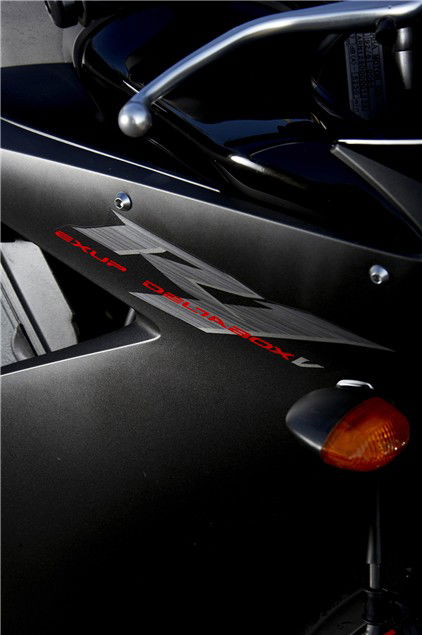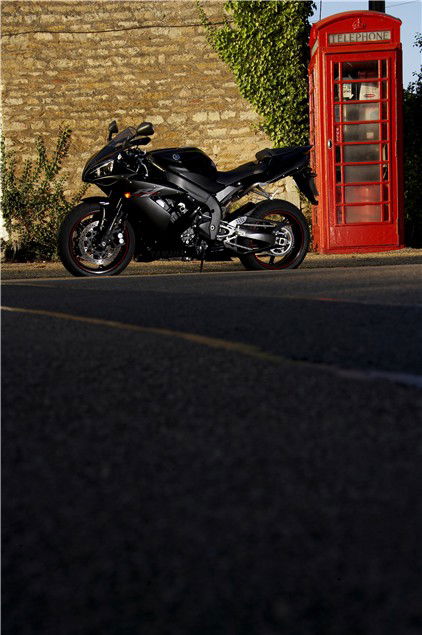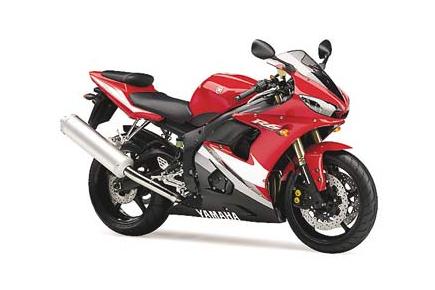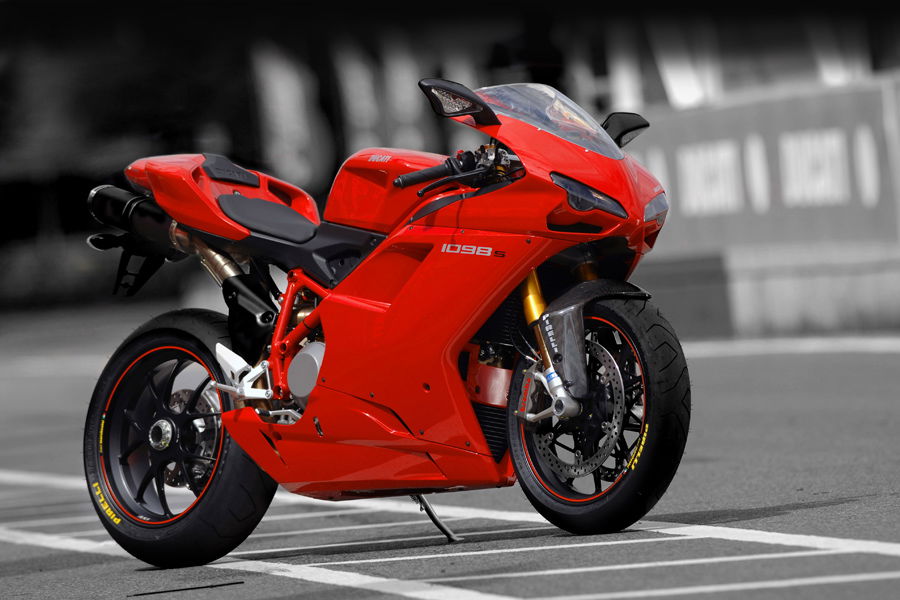2007 R1 review
The 2007 R1 looks the goods but is it? Who better to say than Niall Mackenzie, ex-GP god turned mortal?


Yamaha's target for the fifth-generation 2007 R1 was simple - to put it back on top as the best superbike on the road. But equally as important was for it to be the best on the track.
To achieve these targets a performance increase was necessary, together with better power delivery, all while keeping it the right side of the Euro 3 regs.
So who did Yamaha turn to for help with the development? With a MotoGP title and a few WSB race wins it's hardly surprising that much of the latest R1's development has come from Yamaha Racing. Surprisingly this wasn't the case with the original R1 back in 1998, which wasn't aimed at the track - although many found their way there.
Personally I've always thought the R1 the most stylish of the 1000s, looking sleek from the cat-like headlights to the tidy twin tailpipes. With more engine exposed, the 2007 R1 looks even better but the graphics don't quite come up to scratch both on style and quality. They look like stickers and don't give the totally superior finish we've come to expect from Yamaha R1s.
To go with its new paint (I'd choose red and white every time) the R1's bodywork also has some sharp new lines - and not just to make it look good. A 10mm higher screen that blends in neatly with the upper fairing is easier to get tucked behind while 'layered' side panels suck hot air from the back of the engine. The intake ducts at the front are also 40 per cent bigger, helping both cooling and induction. One other feature that stands out are the beautifully contoured footrest hangers - a very nice touch.
Much work has been done to the engine, mainly to the top end. In a quest to build the most efficient and powerful engine, Yamaha has decided - as on Rossi's bike - to ditch their five-valve head in favour of a four-valve design. To go with this, the valve lift has been increased with narrower valve angles plus a smoother piston crown shape. But probably the most interesting feature of the new engine is the variable intake system (YCC-I).
In simple terms, long intake funnels are good for low and midrange power while short funnels are good for mid and high rpm power. Through trick electronics, some levers and a rod, the funnels are shortened at 10,400rpm to optimize the power throughout the rev range. Knowing this is going on underneath me I could never detect any step or hesitation while accelerating, so they have done a superb job here.

It appeared on the R6 last year, but the YCC-T, or fly-by-wire throttle, is now on the R1 too. Monitoring throttle position 100 times a second this device is controlling fueling to a level we could never have imagined 10 years ago. To enable smooth power delivery it uses a less powerful map in the lower gears then transfers to maximum power in the higher gears. It gives me a headache trying to understand how all these clever devices work. Me, I only want to enjoy the end result - the riding.
While acceleration is seamless and smooth, there is a tiny low speed hesitation going from a closed to open throttle on slow corners. I found adjusting my riding style and timing helped, but it wasn't perfect. Like last year's R1 SP, the standard road bike now has a slipper clutch, which I worked hard in Qatar and found to be first class.
A newly designed chassis with more trail and reduced stiffness but reinforced ribs in the cast mounting points has been developed to improve stability and rider feedback. Having tons of feel and no moments round the Losail circuit I can say Yamaha has done a good job, however their other aim was to improve 'turn-in' and this is something I found less than perfect. Even for the afternoon track sessions with stiffer settings and stickier Pirelli Dragon Super Corsas fitted I struggled. I also couldn't keep my boots from scraping, which told me I couldn't lean over far enough with the low-mounted footpegs. Suspension all-round has been tweaked with slightly stiffer springs and the forks getting larger internal valves, giving an overall balance in rigidity front and rear.
This year six-piston radially-mounted calipers with separate pads do the stopping up front, but with smaller 310mm discs. The idea was to keep overall braking performance the same but reduce the inertia effect of the 320mm discs to help handling. It's hard to tell if this helps a great deal but the six pots look sexy so they get my vote.
Riding the 2007 R1 is an awesome experience. Even revving it before setting off is exciting as it produces a unique burble when you close the throttle. Power is smooth up to the 14,200rpm limiter but feels much nicer than the linear Fireblade. The slipper clutch and well-balanced chassis let you brake hard but stay in line even when you've pushed past your limit.
As with previous R1s I found the transmission slick and positive. I couldn't fault the rear suspension and it was only the vagueness from the front that held me back. High-speed stability was pretty perfect and I also found it easy to get comfortably tucked in. Yamaha have taken bike technology to a new level, and there's a lot going on under the tank that I guess I'll never understand, but I'm happy to say the basic joy of riding fast is better than ever.

